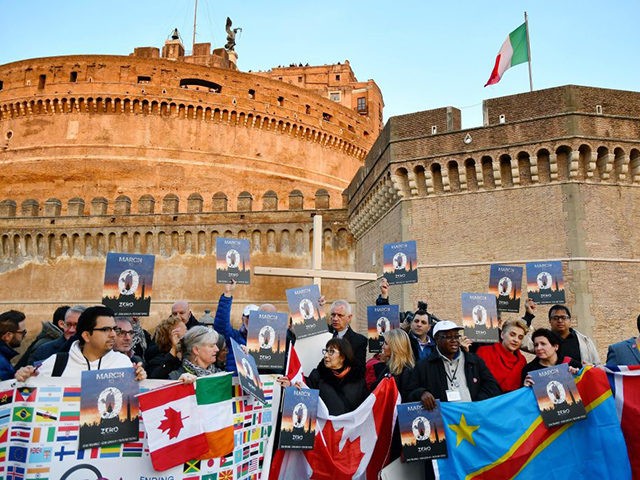ROME — Veteran Vatican journalist Robert Moynihan blasted the Vatican’s long-awaited “McCarrick Report,” writing Tuesday that the text brings injury and obfuscation rather than healing and clarity.
In his scathing review, Moynihan — founder and president of Inside the Vatican — declares that after two years of careful investigations, the 460-page report on former cardinal Theodore McCarrick and his serial homosexual abuse “leaves us still in the ecclesial swamp of cover-up, evasion, and scapegoating of others.”
Instead of exploring the true causes of the disgraced former cardinal’s meteoric rise to power and influence in the Church, the report places the blame on the shoulders of four “scapegoats,” Moynihan states, namely Pope John Paul II, his personal secretary, Cardinal Stanislaw Dziwisz, Pope Benedict XVI, and the whistle-blowing archbishop Carlo Maria Viganò, without whom the report would never even have been written in the first place.
“Yes folks, no one else in the Church hierarchy had any more important role in the McCarrick affair than this saint, his secretary, a saintly retired Pope, and a truth-telling archbishop who has been vilified for telling the truths that he knows,” Moynihan asserts with more than a hint of sarcasm.
“The remarkable thing about this Report is that the final impression it gives is that four of the leading Churchmen of our time — two Popes and two of their closest collaborators — were the ones most responsible for allowing McCarrick to continue his career of serial abuse without being stopped by any Church authority,” Moynihan adds incredulously.
Moynihan alleges that an initial reading of the text suggests an effort to absolve present Church leadership by asserting that “the Vatican of today did nothing wrong at all with regard to the case of ex-Cardinal Theodore McCarrick” and that enabling the corrupt prelate was “largely the fault of four men who are no longer in active service.”
While attempting to lay the blame for McCarrick’s continued active influence in the Church on the shoulders of these four men, the report fails to address the real issues and events that trouble so many people today, Moynihan suggests.
After the report’s publication, “do we now truly understand why McCarrick was able to rise to such heights — Archbishop of Washington, D.C., the nation’s capital, from 2001 to 2006, and an influential member of the College of Cardinals, which is in a sense the ‘global Senate’ of the global Catholic Church?” he asks.
“Do we now truly understand who supported and promoted McCarrick, and who warned about his reputation and opposed his rise?” he continues.
“Do we now truly understand the truth about the ‘McCarrick case’ and, by extension, about how the Church leadership responds to allegations?” he queries.
“Not yet,” Moynihan concludes. “Not yet.”

COMMENTS
Please let us know if you're having issues with commenting.